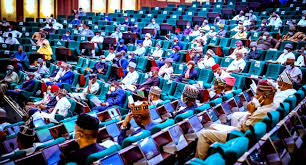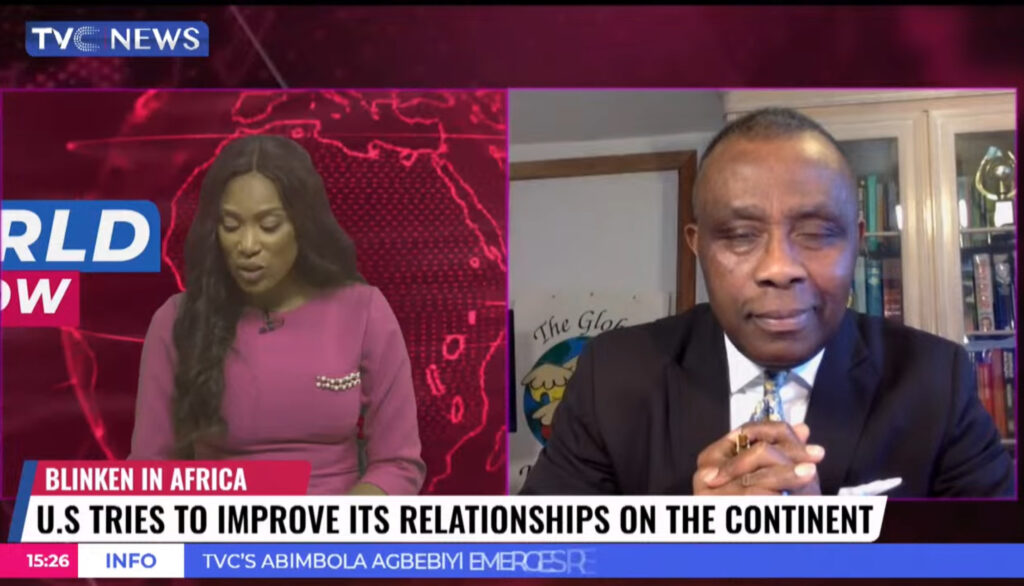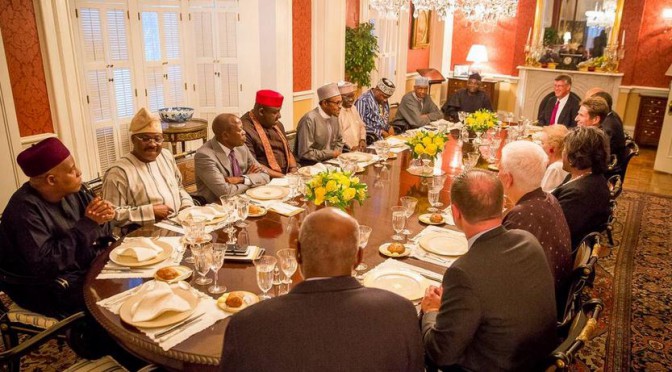Nigeria’s Foreign Minister, H.E. Ambassador Yusuf Maitama Tuggar, offered his perspectives, and the 4D strategic vision for and on the evolving Nigeria-United States partnership.
At the Woodrow Wilson Center in Washington DC, Nigeria’s Foreign Minister, H.E. Ambassador Yusuf Maitama Tuggar, offered his perspectives on the evolving Nigeria-United States partnership. The event, “US-Nigeria Partnership in the Changing Global Arena,” drew a distinguished audience comprising diplomatic figures, former US ambassadors to Nigeria, and policy experts. Moderated by Oge Onubogu, Director of the Wilson Center‘s Africa Program, the discussion centered on the multidimensional relationship between the two countries and its broader ramifications for global security and development.

Nigeria’s Strategic Role and Demographic Potential
Minister Tuggar emphasized the historical depth and strength of the US-Nigeria relationship, which dates back to Nigeria’s independence in 1960. Highlighting Nigeria’s role as a regional leader in Africa, he underscored Nigeria’s significant population, with over 200 million people, half of whom are under the age of 30, presenting both challenges and opportunities for the nation and the importance of collaboration in areas such as security, economic development, and democratic governance. The minister’s remarks were timely, coming on the heels of the recently concluded sixth US-Nigeria Binational Commission in Abuja, where both nations reaffirmed their commitment to addressing shared challenges.
The “4D” Agenda: Democracy, Development, Demography, and Diaspora
One of the central themes of Tuggar’s address was Nigeria’s new foreign policy vision, encapsulated in the “4D” agenda: Democracy, Development, Demography, and Diaspora – under President Bola Tinubu. He articulated how these pillars are integral to Nigeria’s strategy to navigate the complexities of the current global landscape.
Emphasizing Nigeria’s commitment to democracy, the minister highlighted the nation’s role in promoting democratic values across the African continent. He noted that Nigeria, with its demographic, is poised to harness the dividend of its growing population to drive sustainable development and economic growth.
On development, Minister Tuggar stressed the importance of infrastructure projects and economic reforms aimed at creating jobs and fostering inclusive growth. He outlined Nigeria’s ambitious infrastructure development plans, including the expansion of broadband cabling, the adoption of 5G technology, and the construction of gas pipelines to leverage Nigeria’s significant gas reserves; noting the importance of trade and investment partnerships with the United States to support these initiatives.
Engaging the Nigeria Diaspora community is a key focus of the administration; whether in terms of investment opportunities or tapping its diaspora human capital. The minister called for greater investment in Nigeria’s vast gas reserves as a transition fuel, which would support industrialization and energy security while also addressing climate change concerns. He spoke about the significance of intellectual property rights in protecting Nigeria’s burgeoning creative industries, which include Nollywood and the Afrobeats music scenes; buttressing the role the music genre has played in putting Nigeria on the global stage.
Security Cooperation and Counterterrorism
Addressing the issue of security, Tuggar acknowledged the challenges posed by terrorism and transnational crime in the West African region. He called for enhanced US-Nigeria cooperation in counterterrorism efforts, including the provision of advanced military equipment and training. The minister also highlighted Nigeria’s commitment to human rights and transparency in its security operations, noting the establishment of a human rights desk within the Nigerian Army.
The conversation also touched on Nigeria’s strategic autonomy in its foreign policy, with Ambassador Tuggar affirming the nation’s non-aligned stance. He stressed the importance of homegrown solutions to African problems and warned against the presence of foreign mercenaries and private military companies in the region. The minister reiterated Nigeria’s opposition to any form of external dominance and called for partnerships that respect Nigeria’s sovereignty and promote mutual benefit.
Internal Security Challenges and International Partnerships
Minister Tuggar also addressed Nigeria’s internal security challenges, particularly the fight against terrorism and insurgency. He highlighted the critical role of international partnerships in providing the necessary weapons, equipment, and technical support to combat these threats effectively. The minister called for a reevaluation of restrictions like the Leahy Law, which prohibits the sale of certain military equipment to Nigeria, arguing that such limitations hinder Nigeria’s ability to address security threats comprehensively.
Israel-Palestine Conflicts and Nigeria’s Stance
A key highlight of the discussion was Nigeria’s stance on global conflicts, such as the Israel-Palestine crisis and the ongoing war in Ukraine. Minister Tuggar expressed Nigeria’s support for a two-state solution in the Israel-Palestine conflict and reaffirmed the nation’s commitment to upholding principles of sovereignty and territorial integrity in Ukraine.
The event marked Minister Tuggar’s first official visit to Washington, D.C., and he expressed optimism about the future of US-Nigeria relations.




